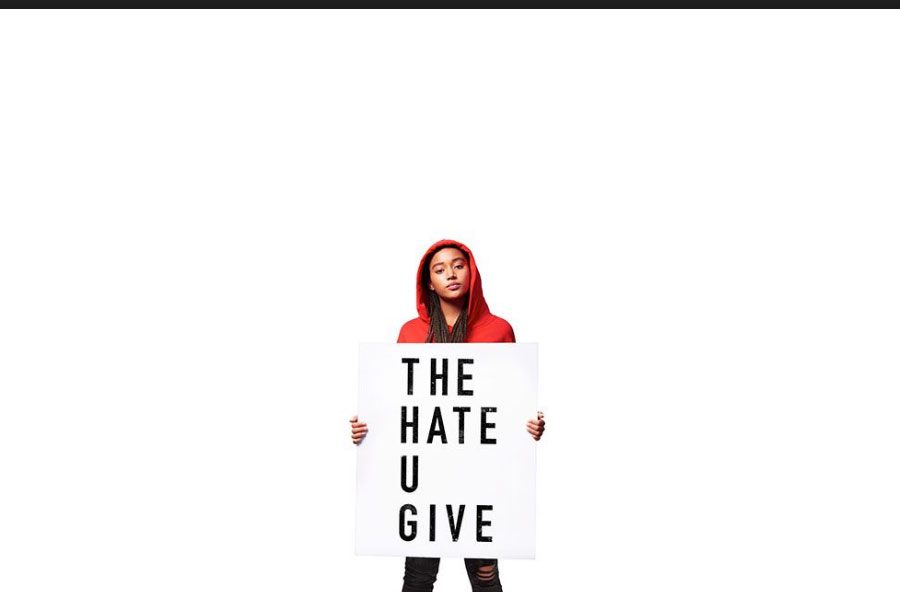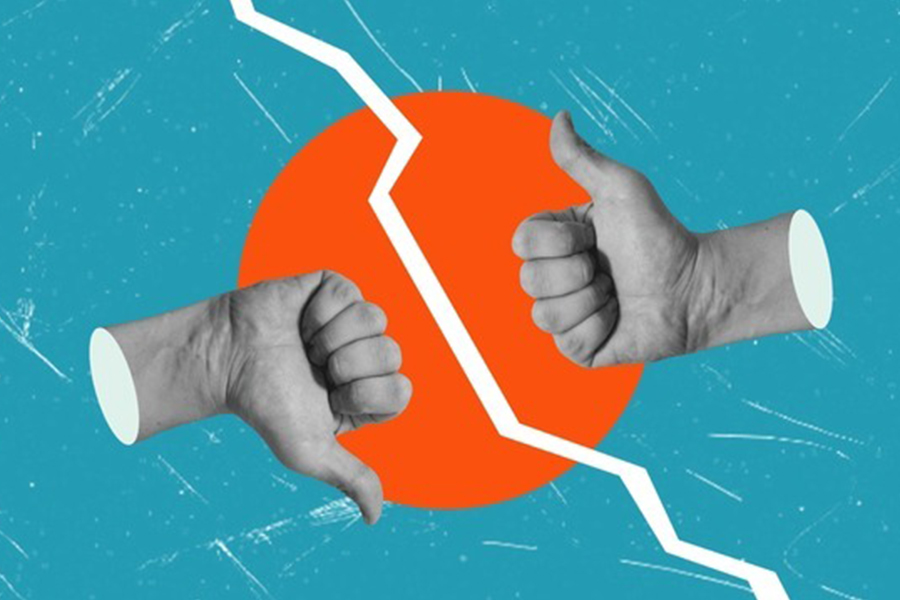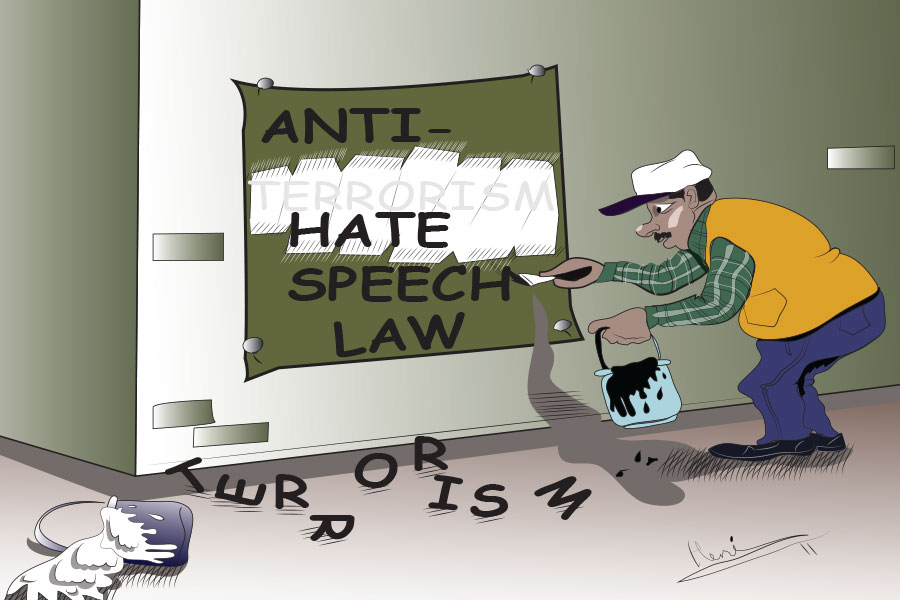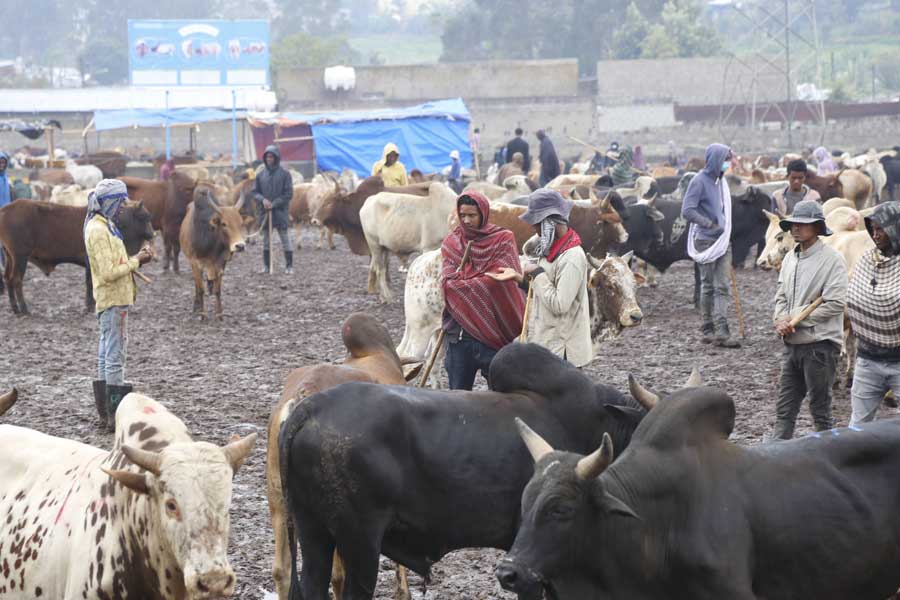
Nov 14 , 2020
By Christian Tesfaye
Little encapsulates the spirit of what we have come to feel toward our political opponents than a monologue Dave Chappelle gave in the most recent episode of Saturday Night Live, an American satirical variety comedy show, that aired last weekend.
After a rather hilarious take on the very serious issue of racialised politics of the United States, he finally addressed the elephant in the room: the 2020 US election. Four years ago, he had been the host of an episode on the show just after the 2016 US election, when Donald Trump won the presidency. The showrunners booked him for a second time on the episode that followed this year’s election in a bold move to tempt fate.
Fortunately, Trump lost this year. It spoke to the president's unpopularity that even allied countries, such as France and the UK, who would normally stay as far away from the United States' domestic politics (a privilege rarely extended to developing countries) celebrate conspicuously.
“It's time to get back to building bridges, not walls,” said Sadiq Khan, mayor of London.
The celebration was loud and long in US cities, but Chappelle's monologue hinted that this did not have to do as much with Trump’s unpopularity. Over 70 million Americans had voted for him, in fact. Instead, what the celebrations made clear was the deep social cleavage that stares back like an abyss. Biden’s win, at best, was a higher score for one team in a soccer match that is still in its half time.
Chappelle noted this and articulated how miserable the other side must feel at the moment. There is a mountain of hate yet to be addressed, and it is felt on both sides.
“[But] here's the difference between me and you … you guys hate each other. I don't hate anybody. I just hate that feeling. That's what I fight through, that's what I suggest you [do],” Chappelle told half of the nation that must have been slighted at Trump’s loss. “You've got to find a way to live your life. You've got to find a way to forgive each other. You've got to find a way to find joy in your existence in spite of that feeling.”
It is not just Chappelle that sees that little has actually been achieved by Biden’s victory. The Guardianrecently ran a piece headlined, “Forget unity – now elections deliver revenge as much as representation,” by William Davies, a political economist.
“Elections under these conditions can still produce landslides, such as [Boris] Johnson’s last year, but they don’t produce mandates,” he writes. “Democracy becomes mesmerising, but inconclusive.”
This is a terrifying prospect. On the one side, it is a positive that people participate in politics more; they are engaging in political discourse, and democracy works better with enhanced participation. In the same token, no one wants to lose anymore, not even for a brief period, not even when there is an election every four years.
We do not have elections in Ethiopia. Here, we settle our political disagreements in our own unsettling ways. It is part and parcel of our political tradition and history. It is not likely to change anytime soon.
As in the US, our brand of political engagement also produces winners and losers. It is inevitable. But, strangely, neither the winners nor the losers feel content. The latter have lost, thus they are angry. The former have won, but what may happen and historical memory weighs heavily upon their minds.
Worse yet, we recognise the cycle. We are all smart enough to realise that no one wins for any extended period. There is going to be a loss and then victory. On and on it will continue. We believe this because we have long given up that the “other” side could be redeemed; we no longer anticipate the “other” to understand and sympathise with us. It is going to be a constant struggle, unending and, in the end, also pointless.
What are we going to do with this knowledge though?
The answer does not sound academic or remotely original. In fact, it is rappers that have been hammering on this point more than any political theorist: we need to overcome the hate we feel for one another.
The alternative is to completely get rid of the other side. But we cannot, and neither should we attempt anything of this nature except try and change their minds. There will always be racists, sexists, nationalists or just people that disagree with our politics. They will constantly annoy and offend us, and we will probably never be on the same age.
But we need to co-exist despite the anger and hate we may feel for each other. Generations of political theorists and scholars - for all of their reading, analysis and provocative ideas - have not come to a conclusion more profound.
PUBLISHED ON
Nov 14,2020 [ VOL
21 , NO
1072]


Life Matters | Apr 13,2019

Fortune News | Sep 26,2021

Life Matters | Jul 13,2024

Films Review | Dec 05,2018

Commentaries | May 04,2019

View From Arada | Jul 20,2024

Editorial | Apr 13,2019

Agenda | Apr 30,2021

Fortune News | Apr 17,2020

Agenda | Dec 05,2018

My Opinion | 131658 Views | Aug 14,2021

My Opinion | 128022 Views | Aug 21,2021

My Opinion | 125985 Views | Sep 10,2021

My Opinion | 123609 Views | Aug 07,2021

Dec 22 , 2024 . By TIZITA SHEWAFERAW
Charged with transforming colossal state-owned enterprises into modern and competitiv...

Aug 18 , 2024 . By AKSAH ITALO
Although predictable Yonas Zerihun's job in the ride-hailing service is not immune to...

Jul 28 , 2024 . By TIZITA SHEWAFERAW
Unhabitual, perhaps too many, Samuel Gebreyohannes, 38, used to occasionally enjoy a couple of beers at breakfast. However, he recently swit...

Jul 13 , 2024 . By AKSAH ITALO
Investors who rely on tractors, trucks, and field vehicles for commuting, transporting commodities, and f...

Jun 28 , 2025
Meseret Damtie, the assertive auditor general, has never been shy about naming names...

Jun 21 , 2025
A well-worn adage says, “Budget is not destiny, but it is direction.” Examining t...

Jun 14 , 2025
Yet again, the Horn of Africa is bracing for trouble. A region already frayed by wars...

Jun 7 , 2025
Few promises shine brighter in Addis Abeba than the pledge of a roof for every family...

Jun 29 , 2025
Addis Abeba's first rains have coincided with a sweeping rise in private school tuition, prompting the city's education...

Jun 29 , 2025 . By BEZAWIT HULUAGER
Central Bank Governor Mamo Mihretu claimed a bold reconfiguration of monetary policy...

Jun 29 , 2025 . By BEZAWIT HULUAGER
The federal government is betting on a sweeping overhaul of the driver licensing regi...

Jun 29 , 2025 . By NAHOM AYELE
Gadaa Bank has listed 1.2 million shares on the Ethiopian Securities Exchange (ESX),...